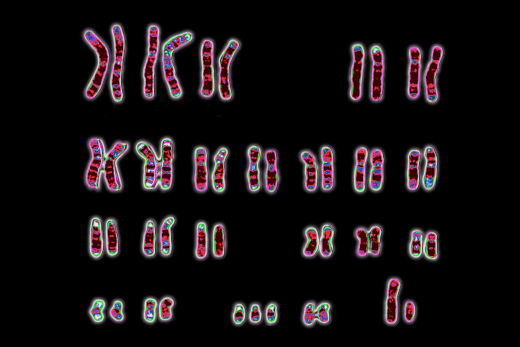Emory University researchers, in an international collaboration with the Trisomy 21 Research Society (T21RS), have found increased COVID-19 mortality among those with Down syndrome compared to the general population and emphasize that the finding should lead to vaccine prioritization for those with the genetic disorder. The results of the study were recently published in The Lancet’s EClinical Medicine.
A 40-year-old with Down syndrome has a similar risk of dying from COVID-19 as an 70-year-old without Down syndrome, according to the research by Anke Huels, PhD, assistant professor of epidemiology and environmental health, and Stephanie Sherman, PhD, professor emerita of human genetics, and their colleagues.
Huels and Sherman worked to develop the survey with other researchers from the T21RS’s committees, including André Strydom, MD, King’s College London and president of the T21RS; Alberto Costa, MD, PhD, Case Western Reserve University; and Mara Dierssen, MD, PhD, Centre for Genomic Regulation in Barcelona.
“Our results, which are based on more than 1,000 COVID-19 patients with Down syndrome, show that individuals with Down syndrome often have more severe symptoms at hospitalization and experience high rates of lung complications associated with increased mortality. These results have implications for preventive and clinical management of COVID-19 patients with Down syndrome and emphasize the need to prioritize individuals with Down syndrome for vaccination” says Huels, first author on this paper.
“We are delighted to see that, partly based on our findings, the CDC included Down syndrome as a ‘high-risk medical condition,’ which will prioritize them for vaccination. Similar decisions have been made in the United Kingdom and Spain and we hope that other countries will soon follow,” Huels says.
For the study, researchers launched an international survey for clinicians and caregivers of individuals with Down syndrome who were infected with COVID-19. Survey data was collected from April to October 2020.
The research was supported by several national and international Down syndrome associations, including Down Syndrome Affiliates in Action, Down Syndrome Medical Interest Group-USA, GiGi’s Playhouse, Jerome Lejeune Foundation, LuMind IDSC Foundation, Matthews Foundation, National Down Syndrome Society and National Task Group on Intellectual Disabilities and Dementia Practices.

